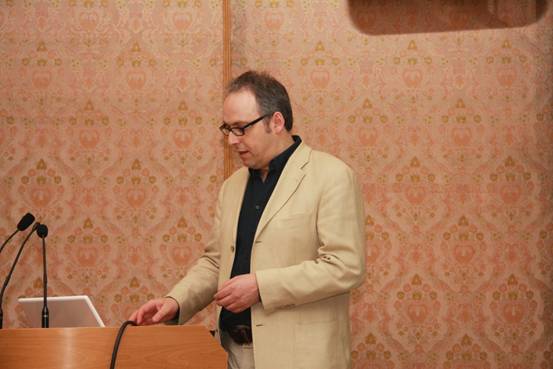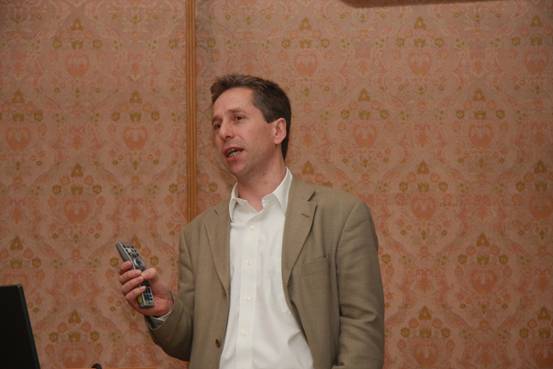Professor Phil Woodland et al. first visited ThinkIT laboratory and watched the speech recognition demonstrations developed by ThinkIT lab, and then Professor Phil Woodland and Dr. Mark Gales gave us talks about works on "Discriminative Training and Adaptation of Speech Recognition Systems" and "Model-Based Approaches to Speaker and Environment Adaptation". After that, they had discussions with the teachers and students.
The Speech Recognition Group, Univ. of Cambridge is the first-class speech recognition laboratory in the world. In the passed several years, they won almost all of the first prices in the speech recognition competitions of NIST, USA. The Hidden Markov Model Toolkit (HTK) for building and manipulating hidden Markov models (http://htk.eng.cam.ac.uk/) developed by them is the most popular toolkit for the research on the speech recognition around the world.
The visit from the Speech Recognition Group, Univ. of Cambridge enhances the intercommunion between IACAS and the first-class speech recognition laboratory in the world, and gives IACAS more opportunities to improve the level of scholarship academic standard.

Professor Phil Woodland

Dr. Mark Gales
Brief introduction about the Speech Recognition Group, Univ. of Cambridge:
The Speech Research Group is part of the Machine Intelligence Laboratory. Its mission is to advance the knowledge of computer-based spoken language processing and develop effective algorithms for implementing applications. Its primary specialism is in large vocabulary speech transcription and related technologies. It also has active research interests in spoken dialogue systems, multimedia document retrieval, speech synthesis and machine learning.
Research Areas
The research topic areas covered by the Speech Research Group include:
-
acoustic modelling using statistical models
-
basic research in machine learning
-
dialogue optimisation using reinforcement learning
-
large vocabulary recognition
-
multimedia document retrieval
-
portability in speech recognition
-
speaker and environment adaptation
-
spoken dialogue systems and VoiceXML
-
statistical language modelling
-
statistical machine translation
-
transcription of found speech